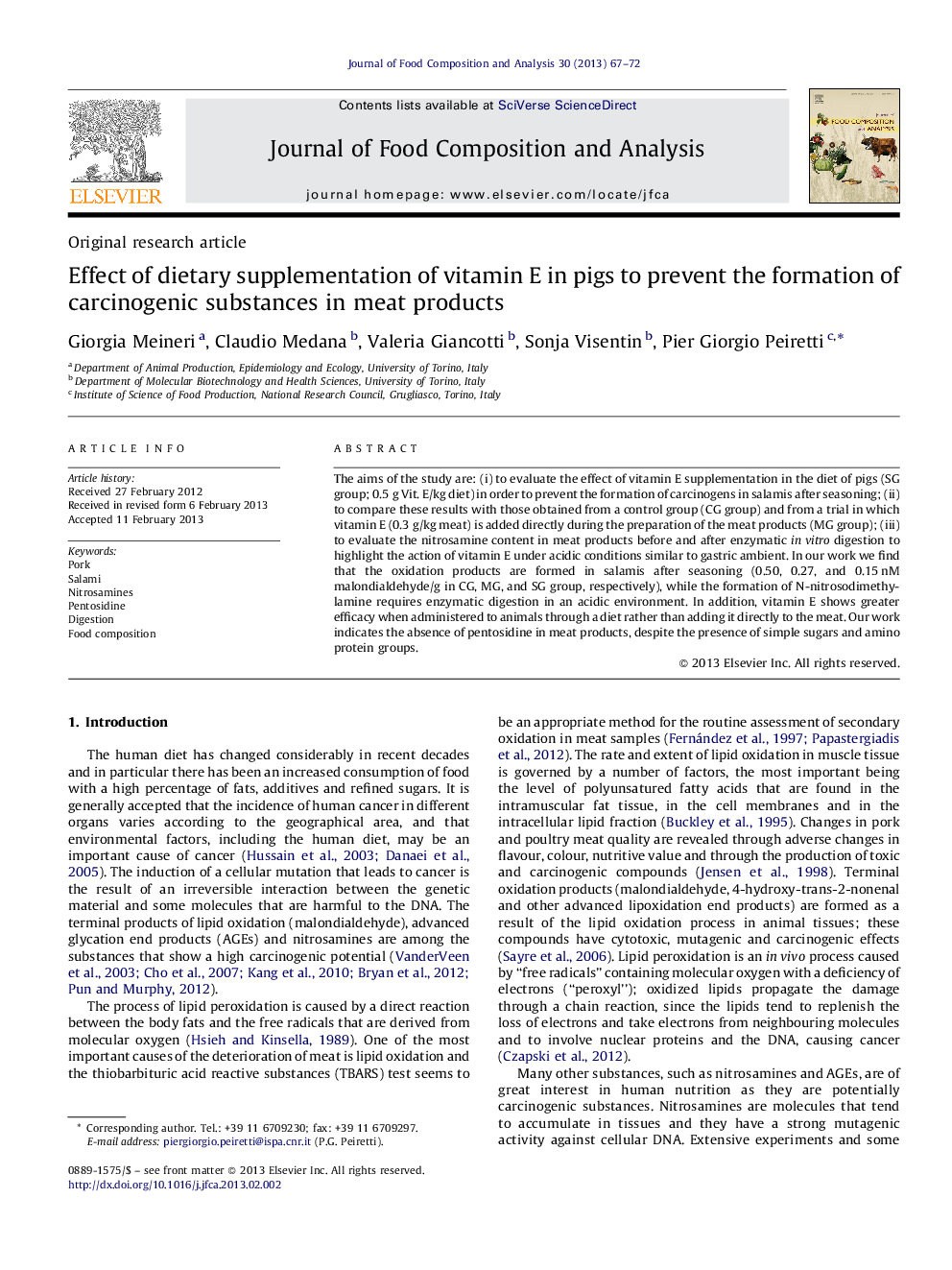| Article ID | Journal | Published Year | Pages | File Type |
|---|---|---|---|---|
| 7620788 | Journal of Food Composition and Analysis | 2013 | 6 Pages |
Abstract
The aims of the study are: (i) to evaluate the effect of vitamin E supplementation in the diet of pigs (SG group; 0.5Â g Vit. E/kg diet) in order to prevent the formation of carcinogens in salamis after seasoning; (ii) to compare these results with those obtained from a control group (CG group) and from a trial in which vitamin E (0.3Â g/kg meat) is added directly during the preparation of the meat products (MG group); (iii) to evaluate the nitrosamine content in meat products before and after enzymatic in vitro digestion to highlight the action of vitamin E under acidic conditions similar to gastric ambient. In our work we find that the oxidation products are formed in salamis after seasoning (0.50, 0.27, and 0.15Â nM malondialdehyde/g in CG, MG, and SG group, respectively), while the formation of N-nitrosodimethylamine requires enzymatic digestion in an acidic environment. In addition, vitamin E shows greater efficacy when administered to animals through a diet rather than adding it directly to the meat. Our work indicates the absence of pentosidine in meat products, despite the presence of simple sugars and amino protein groups.
Related Topics
Physical Sciences and Engineering
Chemistry
Analytical Chemistry
Authors
Giorgia Meineri, Claudio Medana, Valeria Giancotti, Sonja Visentin, Pier Giorgio Peiretti,
